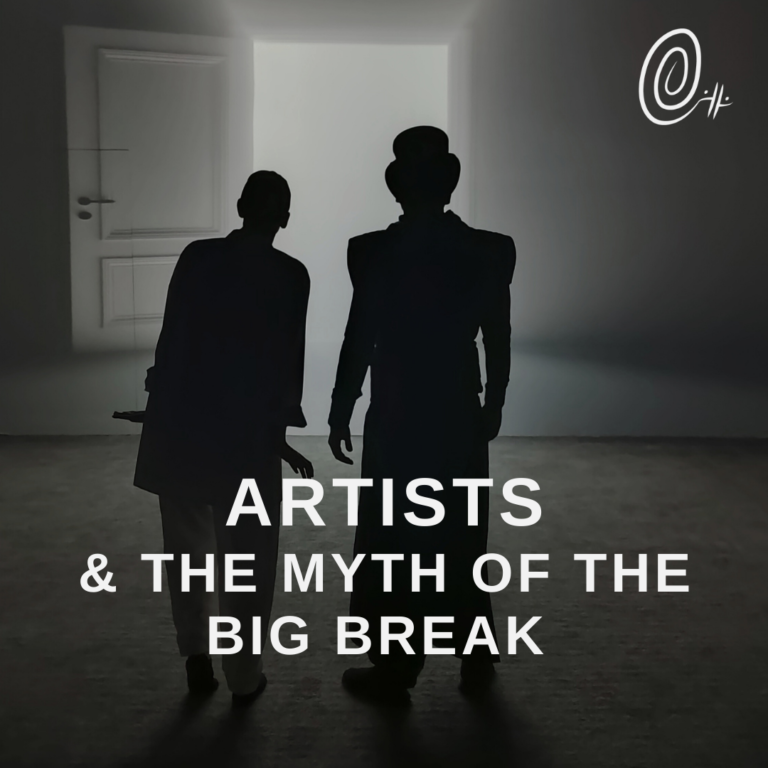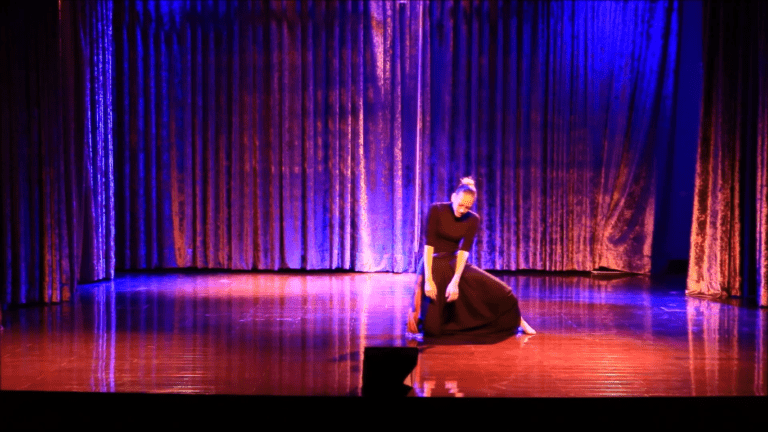Communtiy Fatigue: Is there a web3 for loners?
A couple weeks ago, my brain had a hiccup. It does that sometimes, it’s not unusual, but this one manifested differently. The best word I could use for it was content fatigue. I didn’t want to look at my discord, or twitter, or any social media, and my brain felt like a saturated sponge that couldn’t take anything more. I stopped opening some apps on my desktop and moved others on my phone to a small folder away from the main screen.
Because it was so new, I wondered: why was this happening? What had recently changed?
Getting to the source
A week or two previously I had dipped my toes into the NFT world as a collector. The process itself was confusing and overwhelming – of the hundreds, maybe thousands of NFT projects, how do you choose which is a good investment (as, let’s be honest, that’s what it is)? How do you predict what will go up, and if you have little money, how do you find the right project just early enough to be affordable but later go up?
It’s a landmine of FOMO, and made all the more complicated by the fact that NFT projects are not images: they are essentially passes to exclusive experiences and communities. The stigma of ‘paperhands,’ or people who sell off their NFTs for cheap instead of playing the long game and waiting for the project to go up, means that the focus is all on the community. Projects do a lot to entice their holders to stay and hold longer.
From the start, the contrast between the money talk – how much is the floor price, how do I get a whitelist, let’s get rich – and the community talk – gm (good morning), the constant referral to ‘fam’ – was striking to me. I wondered, what does this mean, ‘fam’? What makes these people feel like they belong to this group, why is it fam, and is it simply a code for a belief in the project’s ability to bring wealth?
I ended up purchasing two NFTs: one from a project I liked, Enchanted Valley, and one I thought would go up, Loser Club. I joined both discords, as one is supposed to do, connected my wallet to get the appropriate role, and started trying to participate.
Immediately, I found it difficult to deal with the Loser Club discord. The conversations revolved around money and what the team was doing to increase the value, and the messages came through so quickly there was little more in the way of ‘talking’ than how are you and gm. People were ‘vibing’ all the time. I liked the project’s mission, but it was clear that the community was not my thing.
The Enchanted Valley was something else – the discord, while not particularly active, seemed full of diverse, genuine people, and I did my best to interact and be part. It was not unsimilar to the discord I am in for patrons of author Catherynne Valente, which is also wholesome, fun, and fairly diverse.
Then a couple weeks later, the content fatigue hit, and I found myself reluctant to participate anywhere.
The Loner Problem
It took about ten days and some conversations to realize that what I was feeling wasn’t actually content fatigue: it was community fatigue.
Like most humans, community is important to me. When I was younger, it was even more important, and I felt the intense desire to belong, to be surrounded by ‘my people.’ One of the communities I joined was a entrepreneurial changemaker-driven community called Sandbox.
For me, if I am part of a community, then I should be part of it: like with the discord of the NFT collections, I felt compelled to participate as much as possible in Sandbox, and if I didn’t like how something worked, to get into governance and try to fix it. After all, if you are part of a community, you should be part of it.
That was something that bothered (and still does) me about the ‘gm fam’ phenomenon. In the discords, with the word ‘fam’ thrown around with nothing but how are you and I’m good vibing to back it up, I felt like I was missing out. The brain wants to be involved and included: it wants to be part of the ‘in crowd.’
But the thing is, I am actually a loner. I have a few great friends that I meet one on one, which form my ‘community.’ I am fiercely and happily independent, and seeing someone once a week is a grand commitment for me. I walk the line between introversion and extroversion like a tightrope walker, both needing the conversations and maxing out socially quickly.
It wasn’t always that way – the story of how it happened probably has to do with age and also things changed enormously after I started dancing professionally, a lifelong dream. That’s a story for another blog, though.
I left Sandbox behind some years ago, but with the NFT collections, the community problem raised its head. The old trappings of belonging started yowling for attention, and the FOMO, need to be involved, and all that other stuff which actually ends up making a toxic soup for me, came into play.
That’s when I realized, the online community ‘tribe’ thing is just not for me anymore, and I have to make some clear, curated decisions about how, if, and when I interact with the communities that I am somehow part of – whether that be silently holding the NFTs (or not), participating sparsely, or not participating at all.
This evolution has got me thinking a lot, especially because the promise, draw, and vision of web3 relies heavily on communities.
Community governance and the engaged few
From NFT collections which are communities to DAOs and community governed organizations, one of the promises of web3 is the reliance on people. The lack of authority and central management means that it’s up to the people to think, care, vote, participate.
While I’m all for cutting out BigTech, and definitely sympathize with the original anarchy vision of cryptocurrency, I’ve had personal experience with decentralized management. For me, it was…well.
I joined Sandbox right around the time of a governance crisis, when the community felt as though the Board was not being transparent and making too many top-down decisions. As part of the working group on new governance after the Board literally quit and left no leadership behind, decentralization was the name of the game. Some questioned if there was a need for governance at all. Everyone, in theory, had equal authority.
I ended up on the new Board because there weren’t any other candidates. We did everything we could to decentralize the workings of the community but were stymied by the simple fact that the engaged few were already at their saturation point and didn’t want or couldn’t take on more responsibility. Everyone had equal authority, and they would bring that point up reliably when we did something they didn’t like, but they weren’t necessarily ready to actually do the work.
Web3 solves this particular problem by attaching monetary value, or stakes, to voting power, so that the people who have a higher stake have more voting power. It still relies, however, on the engaged few, those who are passionate enough to put money in it and then work to make that investment pay off. Last I heard from the grapevine, Sandbox was talking about becoming a DAO – I guess putting a token to engagement helps our gaming brains feel more excited about participating.
Engage wisely
I’m not knocking down web3, or even communities. It’s clear from the amount of ‘gm to this tribe,’ ‘gm to my wow fam,’ ‘gm to those who love web3’ tweets, the use of the word fam, the sheer amount of money that goes into these exclusive events like Bored Ape, that people desperately want to be part of something. They want to find their tribe, their vibe, their people, and sometimes I wonder, is it really so hard to find people to connect with around you? Apparently so, as the need to connect and be connected is stronger than ever.
Still, a part of me wonders how healthy it actually is. Social media’s toxicity is well-documented, and young people are more and more addicted to the dopamine rush of likes and follows. I wonder if this ever-growing emphasis on belonging – attached with the promise of riches if you just belong better and longer – is a good thing, when, if you ask me, we need to be spending a lot more time being embedded in the world around us. The impending darkness and hopelessness of the future will not go away by ignoring it.
I watched a youtube video this morning from a brilliant channel called “Crime Pays But Botany Doesn’t.” The guy, a trash-talking tattooed dude with a strong Chicago accent, is a botanist and makes long videos of him wandering around outside and ranting about how cool plants are. It was a nice reminder that we live in a wildly wonderful world, and as much as people are crowding to get real estate in the metaverse, VR reality won’t produce oxygen.
Of course, this is all opinion – the opinion of a loner, wondering where their place is or might be in the new world of web3, and wondering if it really is for everyone. Certainly I’ll be engaging little if at all with these online communities (and will be more mindful in the future if and when I invest in other NFT projects). At the end of the day, I guess I’m still a little old-fashioned – I won’t be buying into the metaverse, because the things that are around me, as frustrating, confusing, upsetting as they might be, are still where I want to put my time and energy.







